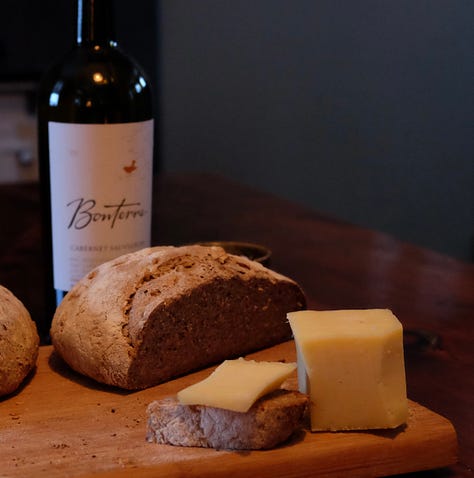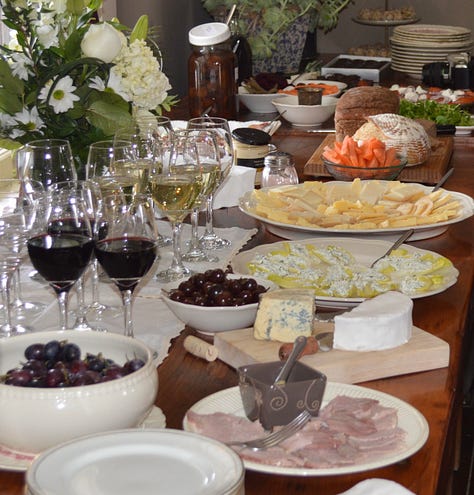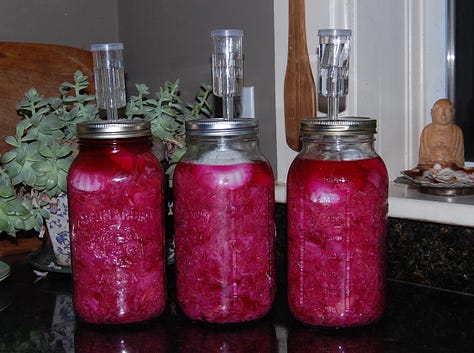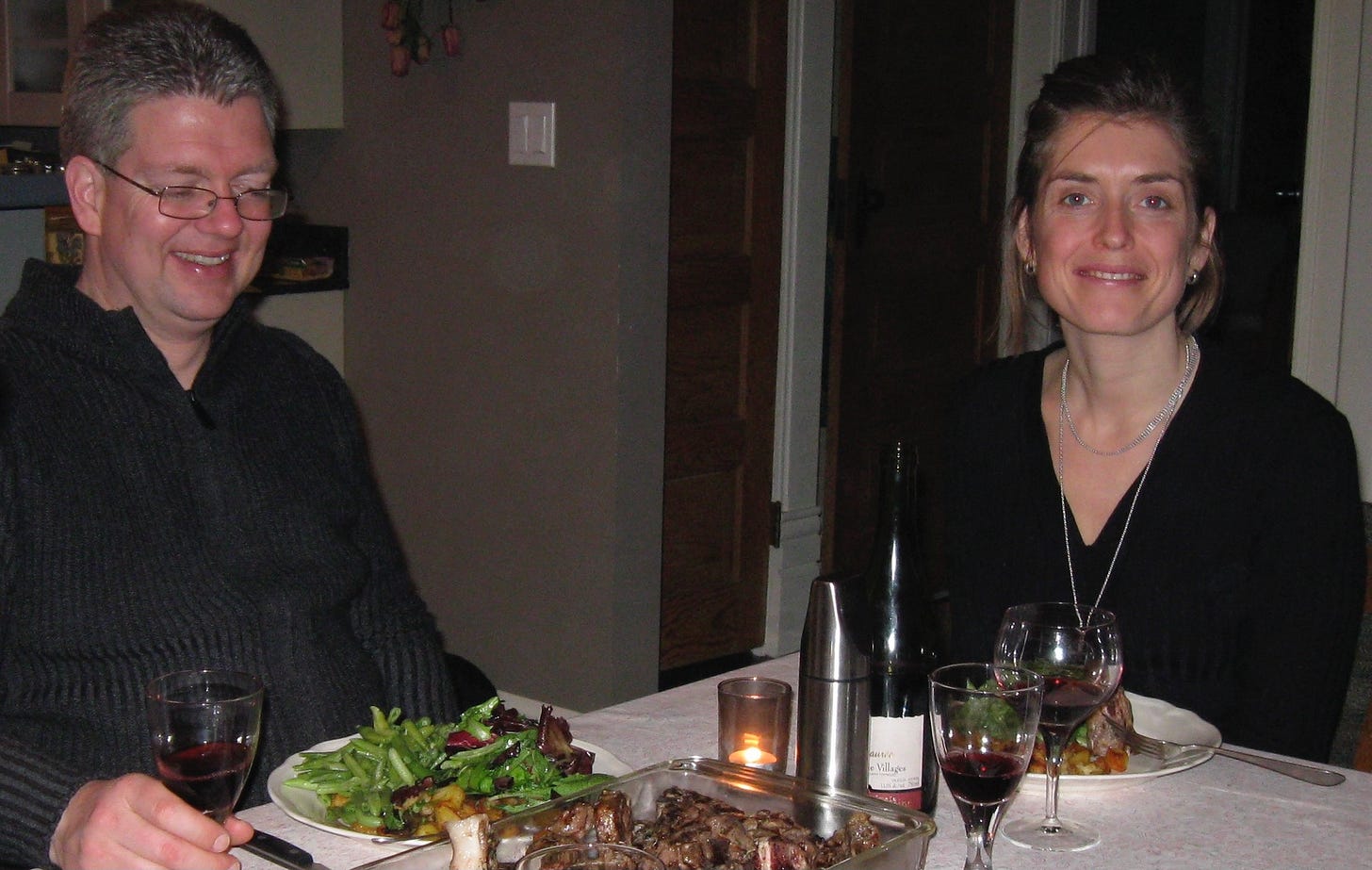You can access a recording of this post here
Nutrient dense animal foods are an important part of a diet that supports optimal health. It took me a while to figure that out. In my late teens I became smitten with the high ideals of eating a diet free of animal foods. I thought it was the best option for optimal health, as well being the most ethical choice - both for the animals and the environment. Life is interesting. If we stay open and present to its unfolding, it brings us incredible opportunities for learning and growth. I had a lot to learn.
I was eating a very “healthy” diet - no garbage, no processed food. Let me tell you - I was intense about getting healthy, because I was scared. I was dealing with a health crisis that I knew at the core of my being could be healed, but I was not quite sure how to get there. So I focused on extreme dietary measures.
Eventually, when I realized that healing was going to take more than detoxing and diet, and that it was actually reflecting something deeper that needed tending to, I was able to turn this health issue around for good. But the fall out of those years of extreme measures led to a depletion of my vital reserves and I ended up with symptoms of chronic fatigue and fibromyalgia. As I said, I had a lot to learn.
Little by little I started to include animal foods in my diet - eggs, fish. Eventually I sourced some ethically raised local chicken, and then small amounts of beef. I was timid about it. Like dipping my toe in to test the waters, and not quite convinced this was the way to go. That was until a unique confluence of things came that changed everything.
It was in my mid 30’s. I was spending a lot of time in Europe engaged in post graduate studies, in a culture that deeply honoured food. And this is where the magic around food happened for me. It was profoundly healing. For someone who loved food but had in so many ways become alienated from its warmth, its joy, its luciousness, its true gift of medicine.
The butter, the animal fats, the fresh seafood. The most delicately grilled cod. A grilled squid salad with fresh herbs and pungent olive oil that I still long for to this day. The mussels, the clams, the oysters. The bone marrow served up with coarse salt and a tiny spoon. The fish stock. The organ meats, the foie gras. The beautiful and abundant fresh vegetables. But you know what most got me - the joy around food. The time taken to eat food, to share food. The connection, the conviviality. The sacredness of what it was to engage in this most profound act of what we put into our bodies. And the attitude with which we enact this most basic of ritual of our humanity. Eating food.
Wouldn’t you know it. As my studies in Europe were coming to a close, I came across the work of Weston Price here and here. It opened my eyes to a whole new way of understanding the nutrient density of food. And it reflected back to me the reasons that the diet I had experienced during my time in Europe created such health in its people. I was suddenly able to see food as the deep nourishment that it was meant to be. And I set out to drink in its nourishment fully.
It led me back full circle to embrace my agricultural roots. It led me back to gardening, to raising most of my own food - for awhile anyways. More on that in another post. To raising pigs and chickens, ducks and geese…. and yes even cows.
To finally being able to make and EAT sourdough bread - albeit rye. It led me on a quest through Italy, and then eventually Quebec and Vermont, to source out unpasteurized A2 dairy cheeses. To a year long adventure of making my own cheese. Returning to my family’s traditions of making sauerkraut and farm fresh yogurt. Making kefir and butter. And EATING butter. To drinking gallons of farm fresh A2 milk and bone broth. And the liver pate! OMG. It was amazing.



Kind of like making up for lost time - for all those decades that I went without these precious animal foods. As I said before it’s a pendulum. If we push ourselves too much in one direction, we get thrown into its opposite extreme. And it healed me. Finally the years of pain subsided. The energy returned. My vitality came back to me. As did my deep connection to the land.
It was a book by Lierre Keith, and finding myself faced with restoring a piece of land that had become depleted. As depleted in fact, as I had become so many years before. This led me full circle to understand that how animals are raised, is in fact key to a sustainable agricultural system, to carbon sequestration, to reversing climate change and restorative methods of agriculture that bring the land back to its full vibrancy.
Lierre Keith’s book broke me open. Broke me open to my place in the order of things. My interdependence on the delicate strands of this web of life which are deeply interwoven with all other life on the planet. Could I step into my full responsibility for it and in it. Could I accept that indeed for me to live life, I had to somehow come to terms with taking life? In that place, one has to accept full responsibility. For everything. For all of life. For all of one’s actions in the web of life. For the repercussions of all that we choose in this precious and vulnerable existence.
NUTRIENT DENSE ANIMAL FOODS
So what are these foods anyways? The most nutrient dense animal foods are seafood and organ meats also called offal - the parts of the animal that we most commonly discard, throw away. It’s hard to get one’s head around organ meats in a culture where we are no longer accustomed to eating these foods. Our ancestors ate them - that’s for darn sure. Traditional people eat the whole animal. They do not let anything go to waste. Not only for the nutrient content but also to honour the animal. To be grateful. To use up every last bit of the animal that has given its life for our sustenance. It does not take much organ meat to make a big difference. These foods are LOADED with nutrition. Did you know that in the wild, the first part of the prey that a predator will eat is the liver, then the other organs?
After seafood and organ meats, next in line would be dairy and pastured and grass fed meats. I do want to point out that the nutrient density of these foods, and the overall effect on our environment from consuming these foods depends very much on how these animals are raised. For seafood choose wild caught whenever possible and/or ethically harvested. When choosing dairy, eggs, poultry, pork, beef, lamb and other meats consider the following parameters
From animals that are wild, pastured and/or grass-fed
From animals that are not fed GMO corn, soy or other GMO foods
From animals that are raised organically and free from administered growth hormones, antibiotics and chemicals such as insecticidal treatments
SEAFOOD
Best options include Herring, Sardines, Mackerel, Anchovies, Wild Salmon
Shellfish including Mussels, Oysters, Clams
Fish Sauce, Clam Juice, Fish Broth, Fish Eggs, Caviar, Roe
For other seafood options see EWG’s Seafood Guide here
ORGAN MEATS and OFFAL
Liver ranks the highest, consider also bone marrow, kidney, tongue, heart, giblets, gizzard, tripe, sweetbreads etc
Collagenous cuts including skin and feet, necks, knuckle bones, shanks, hocks, oxtail, pig tails, pigs ears and rinds
Bone broth and gelatin
Tallow, lard, schmalz, duck fat - from organic, pastured and/or grass fed animals
OTHER NUTRIENT DENSE ANIMAL FOODS
Butter and cheese made from pastured and grass fed animals
Fermented organic grass fed dairy foods including yogurt and kefir
Eggs especially the yolks from pastured poultry not fed GMO corn and soy
Meats from pastured poultry and pork that are not fed GMO corn and soy
Grass fed beef, lamb and meat from other ruminants not fed GMO corn and soy
Wild game
Yes - animal foods can be an important part of a healthy diet. Are they important for you? How much animal food do you need to be healthy? It does not take vast amounts of animal foods to reap their benefits.
How these animals are being raised IS important. I understand that many people don’t want to eat animal food because the way animals are being raised in modern agriculture is not OK. There are many small scale farmers that understand this. That deeply love and care for their animals. They love the land and they are committed to producing nutrient dense foods in the most ethical ways possible. Source them out. They would love your support.








Oh you had me in tears a few times reading this... so inspiring...and I can feel and almost touch the love you have for the land and the animals we have been entrusted with.